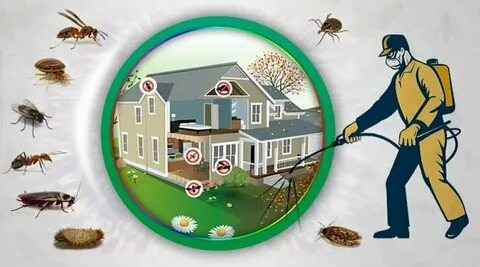Living in a home infested with pests is not only distressing but also a serious health hazard. Unfortunately, many tenants across the UK face this issue, often without proper support from their landlords. Pests like rats, mice, cockroaches, and bedbugs can make a property uninhabitable — and if your landlord fails to act, you may be entitled to take legal action.
In this article, we’ll break down your legal rights, landlord responsibilities, and how the Disrepair Team can help you secure the repairs and compensation you deserve.
Understanding Pest Infestation in Rented Homes
Pest infestations can include:
Rodents (rats and mice)
Insects (cockroaches, ants, fleas, bedbugs)
Birds (pigeons nesting in roofs)
Wasps or bees in walls or attics
These pests don’t just cause inconvenience. They carry diseases, damage property, and can seriously affect your mental and physical health.
What Causes Pest Infestations in Rental Properties?
Several factors contribute to pest infestations, including:
Poor sanitation – Overflowing bins or unclean communal areas.
Structural issues – Gaps in walls, broken vents, or faulty drainage.
Damp or mould – Moist environments attract insects and rodents.
Neglect by landlords – Failure to address leaks, holes, or other conditions that invite pests.
As a tenant, you are responsible for keeping the property clean, but structural and repair-related issues fall under the landlord’s responsibilities.
Your Legal Rights as a Tenant
Under the Landlord and Tenant Act 1985, landlords must:
Ensure the property is fit for human habitation.
Maintain the structure and exterior of the building.
Address any disrepair that leads to or exacerbates pest infestation.
The Homes (Fitness for Human Habitation) Act 2018 further empowers tenants to take legal action if living conditions are unsafe or unclean — including due to pests.
If your landlord ignores your requests to resolve the infestation, they are breaching the tenancy agreement and UK housing law.
Signs of a Pest Infestation
You may have a claim if you notice:
Droppings or nests in cupboards, attics, or under floorboards.
Bite marks on food packaging or furniture.
Unusual smells from urine or droppings.
Noises in the walls, ceiling, or floors (scratching or scurrying).
Frequent pest sightings, especially during the day.
Even if the pests are not immediately visible, these signs can be strong evidence of infestation.
Steps to Take if You Spot a Pest Problem
1. Inform Your Landlord Immediately
Always report infestations in writing. Describe the problem, list symptoms or damage, and request urgent pest control.
2. Collect Evidence
Take dated photos, videos, or even samples (e.g., droppings or dead pests). This will be useful if legal action is necessary.
3. Contact Environmental Health
If your landlord refuses to act, your local council’s Environmental Health team can inspect the property and issue a notice requiring the landlord to take action.
4. Speak to Housing Disrepair Team UK
If nothing is done and you’re still living in unsafe conditions, the Housing Disrepair Team UK can take legal action to enforce repairs and compensation.
Can You Claim Compensation?
Yes. If pest infestations are due to your landlord’s negligence, you may be eligible for:
Compensation for suffering – Stress, anxiety, and sleep disruption.
Medical costs – If the infestation caused or worsened health conditions.
Property damage – Replacing furniture, clothing, or food.
Loss of amenity – If you were unable to use certain rooms due to pests.
The compensation amount depends on the severity of the infestation and how long it lasted.
Why Choose Housing Disrepair Team UK?
At Housing Disrepair Team UK, we specialise in tenant rights and housing disrepair claims. Our dedicated legal team will:
Assess your claim and evidence.
Handle all communications with your landlord.
Work on a no win, no fee basis.
Push for quick resolution or compensation.
Our goal is simple: to ensure you get the safe, healthy living conditions you’re legally entitled to.
Landlord Excuses You Should Ignore
Don’t be misled by common landlord excuses like:
“You brought the pests in.”
“It’s your responsibility to fix.”
“Just buy some traps or spray.”
Unless there’s clear evidence that tenant behaviour caused the issue, pest infestations are usually the landlord’s responsibility — especially if linked to structural or hygiene issues.
How to Prevent Pest Problems in the Future
While landlords must address repairs and infestations, tenants should also:
Keep food sealed and surfaces clean.
Dispose of rubbish regularly.
Report cracks, leaks, or holes immediately.
Keep records of all communication with the landlord.
Working together can reduce the risk of future issues, but the legal burden falls on landlords for building-related problems.
Conclusion: Don’t Let Infestations Go Unchallenged
Pest infestations make homes unsafe, unclean, and unfit for human habitation. If your landlord isn’t taking the issue seriously, you have legal rights. The Housing Disrepair Team UK can help you fight for justice, get the repairs done, and claim compensation for your suffering.
Don’t wait until your health suffers or your belongings are ruined — contact our team today and take control of your living conditions.
 :
https://housing-disrepair-team.uk/
:
https://housing-disrepair-team.uk/

